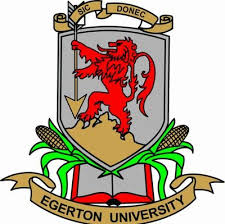Human Nutrition as a subject has continued to occupy an important position in the world due to the prevailing food and nutritional problems affecting populations in both the developed and the developing countries. The expertise and subject content in Foods, Nutrition and Dietetics prepares professionals capable of providing services in various settings to help solve health and nutritional problems associated with food and nutrition inadequacies at the individual, family, and at the community levels.
This Bachelor of foods and Nutrition degree programme as offered at Egerton University addresses current issues in foods, nutrition and dietetics, and will be geared towards filling existing gaps in manpower needs in this area in both the public and private sector.
Additional courses in agricultural sciences will be offered to provide a good understanding of issues related to food production and food supply at home and national level.
Professional openings for graduates in Foods, Nutrition and Dietetics include the ministries of Health, Agriculture, Private and Government Hospitals, Hospices, Non-government organizations (NGO?s), and other community service oriented organizations.
Graduates of the programme can be deployed in the community as field nutritionists by government ministries or NGOs, to advice families on food production and consumption in order to improve household food security and nutrition status. In addition they can also serve in outreach programmes within hospitals where they could follow and advise discharged patients with diet related illnesses.
The graduates of this programme are also well prepared for self-employment in the area of food service delivery, and as diet counsellors to individuals or groups with diet related ailments. This can therefore, strengthen and contribute to primary health care which emphasizes preventive rather than curative health care.
The growth of the food industry in Kenya and other African countries means additional employment opportunities in that the industry will utilise graduates in human nutrition and dietetics in their outreach programmes and in their research departments.
The programme is unique in that it produces a special care of professionals who will be well grounded in foods, nutrition and dietetics as well as in agricultural sciences. This background is essential to ensure adequate food security and proper utilization of food.
